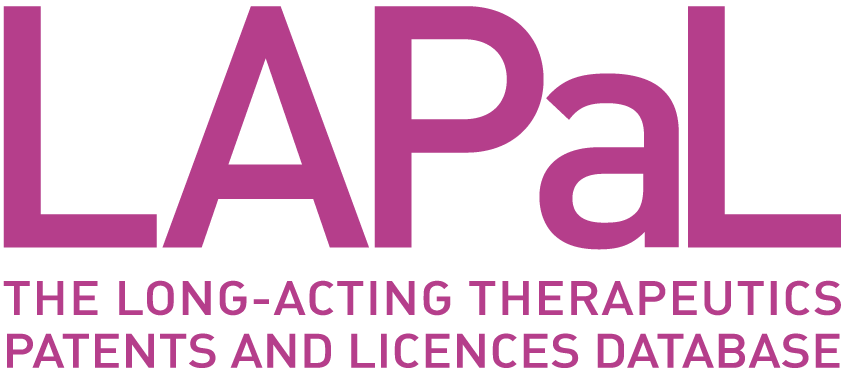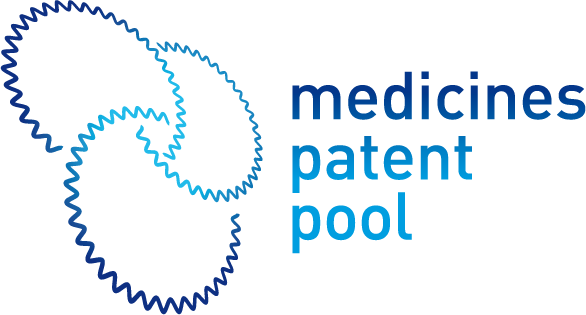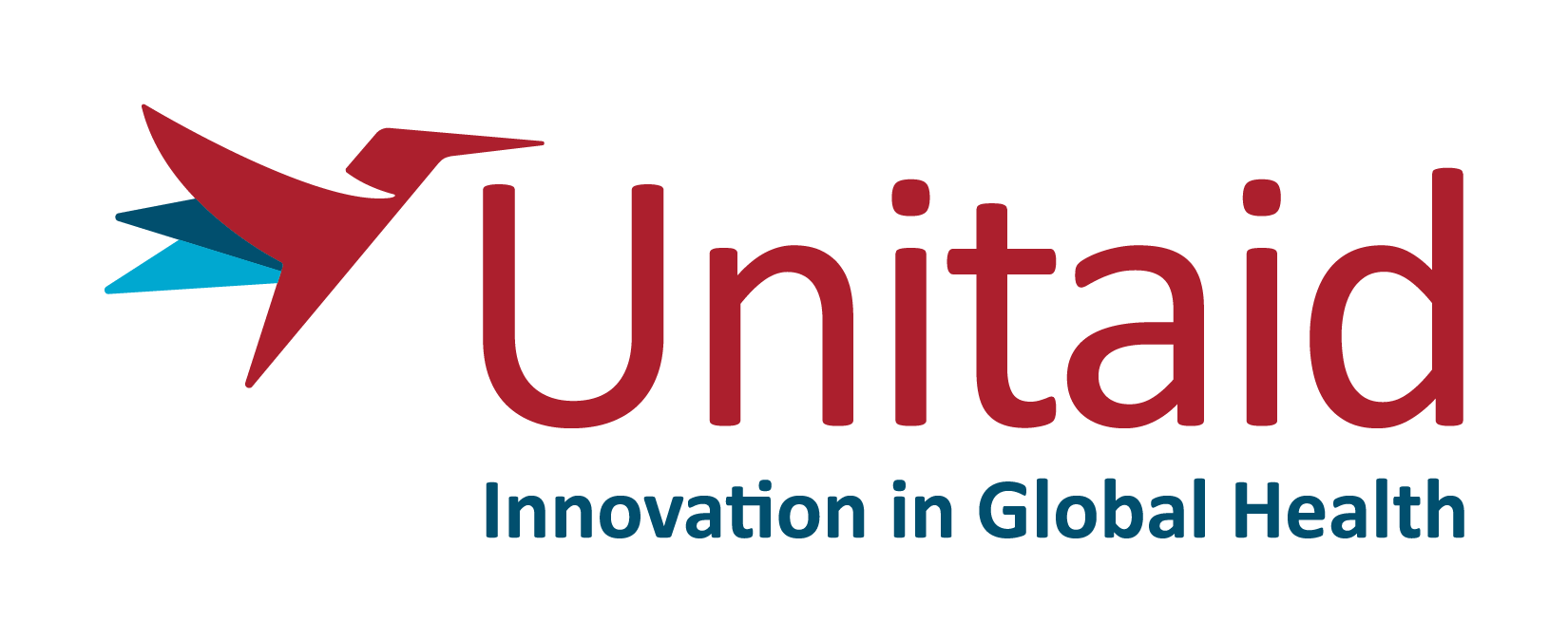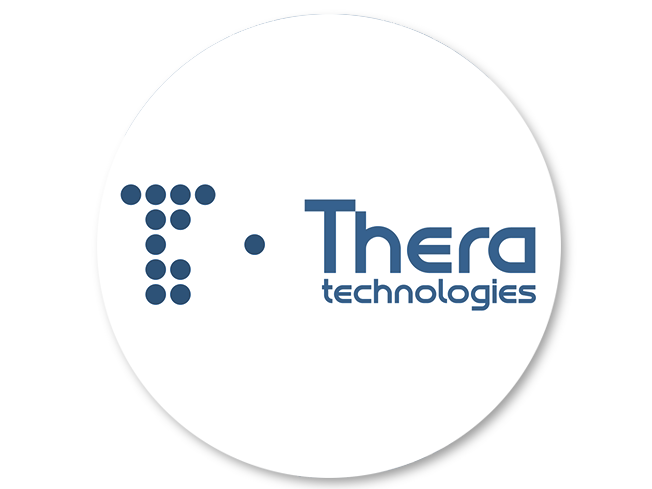
|
Developed by 

|
Supported by 

|

Ibalizumab
Developer(s)

|
Theratechnologies Inc. https://www.theratech.com/Canada Ibalizumab was initially developed by Biogen. In the late 1990s, Tanox acquired the exclusive global rights. Subsequently, Genentech acquired Tanox inheriting the ibalizumab license and later partnering with TaiMed Biologics. In 2012, TaiMed contracted WuXi PharmaTech to manufacture ibalizumab. Finally, in 2016, TaiMed established a collaboration with Theratechnologies for commercialization. |

|
TaiMed Biologics Inc. https://www.taimedbiologics.com/Taiwan TaiMed Biologics is a highly specialized biopharmaceutical company headquartered in Taiwan that focuses on the development and commercialization of HIV therapeutics. TaiMed was originally founded in Sep 2007 after securing an exclusive license agreement with Genentech for the anti-cd4 antibody Ibalizumab (TMB-355). In March 2018, TMB-355 was approved by the U.S FDA under the brand name Trogarzo®. |
|
|
Theratechnologies/TaiMed Biologics |
Drug structure

Crystal structure of HIV-1 primary receptor CD4 in complex with Ibalizumab
https://doi.org/10.2210/pdb3O2D/pdb
Drug information
Associated long-acting platforms
Recombinant humanized monoclonal antibody
Administration route
Subcutaneous, Intramuscular, Intravenous
Therapeutic area(s)
Use case(s)
Use of drug
Ease of administration
User acceptance
Not provided
Dosage
Available dose and strength
Not provided
Frequency of administration
Not provided
Maximum dose
Not provided
Recommended dosing regimen
Not provided
Additional comments
Not provided
Dosage link(s)
Not provided
Drug information
Drug's link(s)
Not provided
Generic name
Brand name
Compound type
Summary
Approval status
Regulatory authorities
Delivery device(s)
No delivery device
Scale-up and manufacturing prospects
Scale-up prospects
Ibalizumab is a humanised IgG4, κ monoclonal antibody produced in a NS0 cell line. The successful scale-up of therapeutic monoclonal antibody (mAb) products involves achieving favourable pharmacokinetic profiles, maintaining formulation stability and ensuring consistency of the overall product quality. However, industrial bioprocessing steps can potentially introduce additional complexities regarding mAb solution viscosity and aggregation propensity.
Tentative equipment list for manufacturing
Industrial bioreactor vessel with a production volume capacity of between 5-25kL. Continuous disc stack centrifuges for bioreactor harvesting with subsequent membrane and depth filtration for supernatant clarification. Recombinant protein-A chromatography or other suitable affinity capture apparatus followed by two chromatographic polishing steps such as cation- and anion-exchange. Ultrafiltration membrane system to concentrate and formulate the final product.
Manufacturing
Store in a refrigerator at 2˚C to 8˚C (36˚F to 46˚F). Protect from light until use. Do not freeze. Ibalizumab is supplied in a single 2 mL (200mg/1.33 mL) glass vial with a rubber stopper and aluminum flip-off seal. MAbs are highly dependent on their structural, chemical and conformational stability for biological activity. Chemical degradation of mAbs during manufacture can lead to the generation of product variants and complex impurity profiles. Additionally prior to packaging, the final product requires close monitoring for the presence of residual contaminants such as endotoxins.
Specific analytical instrument required for characterization of formulation
Formulation characterisation steps for therapeutic mAb products include (but are not limited to): (1) Identification of post-translational modifications using ion-exchange chromatography and capillary isoelectric focusing. (2) Measurement of concentration dependent aggregation rates via thermal differential scanning calorimetry, sub-visible particle quantitation and size-exclusion chromatography. (3) Antibody clipping and fragmentation detection by capillary electrophoresis.
Clinical trials
TMB-202
Identifier
NCT00784147
Link
https://clinicaltrials.gov/study/NCT00784147
Phase
Phase II
Status
Completed
Sponsor
TaiMed Biologics Inc.
More details
The investigational product, ibalizumab, is a humanized IgG4 monoclonal antibody administered via intravenous infusion at 800 mg every 2 weeks or at 2000 mg every 4 weeks. In addition to study drug, all patients will receive an optimized background regimen (OBR), which is a standard-of-care regimen selected by the investigator prior to randomization that is comprised of 2-4 antiretroviral agents. These agents must have been approved by the local regulatory agency or be available through expanded-access programs for treatment of human immunodeficiency virus (HIV).
Purpose
Dose-Response Study of Ibalizumab (Monoclonal Antibody) Plus Optimized Background Regimen in Patients With HIV-1
Interventions
Intervention 1
Intervention 2
Countries
Sites / Institutions
Not provided
Trials dates
Anticipated Start Date
Not provided
Actual Start Date
2008-08-01
Anticipated Date of Last Follow-up
2014-04-17
Estimated Primary Completion Date
Not provided
Estimated Completion Date
Not provided
Actual Primary Completion Date
2011-04-01
Actual Completion Date
2011-04-01
Studied populations
Age Cohort
- Adults
- Older Adults
Genders
- All
Accepts pregnant individuals
No
Accepts lactating individuals
No
Accepts healthy individuals
No
Comments about the studied populations
Inclusion Criteria: 1. Are capable of understanding and have voluntarily signed the informed consent document 2. Have documented HIV-1 infection by official, signed, written history (eg, laboratory report), otherwise an HIV-antibody test will be performed 3. Have no acquired immunodeficiency syndrome (AIDS)-defining events in the 3 months before screening, other than cutaneous Kaposi's sarcoma or wasting syndrome due to HIV 4. Are able and willing to comply with all protocol requirements and procedures 5. Are 18 years of age or older 6. Have a life expectancy that is \>6 months. 7. Have a viral load \>1,000 copies/mL and documented decreased susceptibility to at least one NRTI, one NNRTI, and one PI, as measured by resistance testing 8. Are receiving a stable highly active antiretroviral
Health status
Study type
Interventional (clinical trial)
Enrollment
113
Allocation
Randomized
Intervention model
Parallel Assignment
Intervention model description
Not provided
Masking
Quadruple-blind masking
Masking description
Quadruple (Participant, Care Provider, Investigator, Outcomes Assessor)
Frequency of administration
Studied LA-formulation(s)
Studied route(s) of administration
Use case
Treatment
Key resources
TMB-302
Identifier
NCT03913195
Link
https://clinicaltrials.gov/study/NCT03913195
Phase
Phase III
Status
Completed
Sponsor
TaiMed Biologics Inc.
More details
This study is designed to assess the safety and pharmacokinetic profile of 800 mg Trogarzo once every two weeks administered via "IV Push" or intramuscular injection. An initial "Sentinel Group" of 5 participants will begin receiving 800mg Trogarzo on a gradual schedule of increasing concentration and decreasing administration time until undiluted IV Push over 30 seconds is achieved, while safety and pharmacokinetics are evaluated. If no safety signals are seen, the Core Group of 15 participants will be enrolled. The Core Group will receive 800mg Trogarzo via undiluted IV Push over 30 seconds while safety and pharmacokinetics are monitored. After completion of the IV Push portion of the study, a second group of 20 participants will be enrolled to evaluate the safety and pharmacokinetics of
Purpose
Study of the Safety of Trogarzo™ Administered as an Undiluted "IV Push" or an Intramuscular Injection
Interventions
Intervention 1
Countries
Not provided
Sites / Institutions
Not provided
Trials dates
Anticipated Start Date
Not provided
Actual Start Date
2019-05-30
Anticipated Date of Last Follow-up
2023-09-14
Estimated Primary Completion Date
Not provided
Estimated Completion Date
Not provided
Actual Primary Completion Date
2022-10-17
Actual Completion Date
2022-10-31
Studied populations
Age Cohort
- Adults
- Older Adults
Genders
- All
Accepts pregnant individuals
No
Accepts lactating individuals
No
Accepts healthy individuals
Yes
Comments about the studied populations
Inclusion Criteria - HIV-infected participants (all groups): 1. Are capable of understanding and have voluntarily signed the informed consent document 2. Currently receiving a stable Trogarzo-containing ARV regimen for a minimum of 3 months, and no change in background ARVs anticipated over the period of study participation; a stable regimen is defined as having no changes in dose or frequency and no interruptions greater than or equal to 2 weeks during the 3 month period 3. Have no acquired immunodeficiency syndrome (AIDS)-defining events in the 3 months before Screening, other than cutaneous Kaposi's sarcoma or wasting syndrome due to HIV 4. Are able and willing to comply with all protocol requirements and procedures 5. Are 18 years of age or older 6. Have a life expectancy that is \>6
Health status
Not provided
Study type
Interventional (clinical trial)
Enrollment
46
Allocation
Not provided
Intervention model
Sequential assignment
Intervention model description
Not provided
Masking
Open label
Masking description
None (Open label)
Frequency of administration
Studied LA-formulation(s)
Studied route(s) of administration
Use case
Treatment
Key resources
TMB-311
Identifier
NCT02707861
Link
https://clinicaltrials.gov/study/NCT02707861
Phase
Phase III
Status
Completed
Sponsor
TaiMed Biologics Inc.
More details
Ibalizumab is a monoclonal antibody that works by blocking HIV entry into the immune system cells (CD4+ or T-cells) the virus typically infects. Ibalizumab is intended for use in combination with other anti-HIV drugs in people with multi-drug resistant HIV and limited treatment options. This study will collect further information on the safety and tolerability of intravenously administered (IV) ibalizumab combined with an optimized background regimen for treating multi-drug resistant HIV-1 infection, and will provide continuing access to ibalizumab for patients completing a prior ibalizumab clinical trial.
Purpose
Ibalizumab Plus Optimized Background Regimen in Treatment-Experienced Patients With Multi-Drug Resistant HIV-1
Interventions
Intervention 1
Intervention 2
Countries
Sites / Institutions
Not provided
Trials dates
Anticipated Start Date
Not provided
Actual Start Date
2016-03-01
Anticipated Date of Last Follow-up
2021-02-18
Estimated Primary Completion Date
Not provided
Estimated Completion Date
Not provided
Actual Primary Completion Date
2018-11-01
Actual Completion Date
2018-11-01
Studied populations
Age Cohort
- Adults
- Older Adults
Genders
- All
Accepts pregnant individuals
No
Accepts lactating individuals
No
Accepts healthy individuals
No
Comments about the studied populations
Inclusion Criteria: (Cohort 1) * Currently receiving ibalizumab via other TaiMed-sponsored or investigator-Sponsored protocol * Are capable of understanding and have voluntarily signed the informed consent document (Cohort 2) * 18 years of age or older * Are capable of understanding and have voluntarily signed the informed consent document * Have documented HIV-1 infection by official, signed, written history (e.g., laboratory report), otherwise an HIV-antibody test will be performed * Are able and willing to comply with all protocol requirements and procedures * Have a viral load \>1,000 copies/mL and documented resistance to at least one antiretroviral medication from each of three classes of antiretroviral medications as measured by previous viral resistance testing (resistance test
Health status
Study type
Interventional (clinical trial)
Enrollment
79
Allocation
Not provided
Intervention model
Parallel Assignment
Intervention model description
Not provided
Masking
Open label
Masking description
None (Open label)
Frequency of administration
Studied LA-formulation(s)
Studied route(s) of administration
Use case
Treatment
Key resources
TMB-108
Identifier
NCT01292174
Link
https://clinicaltrials.gov/study/NCT01292174
Phase
Phase I
Status
Completed
Sponsor
TaiMed Biologics Inc.
More details
The is a blinded safety study of ibalizumab given by subcutaneous injection in sequentially increasing dose-groups of at-risk, HIV-negative, healthy volunteers. The study involves the administration of four total injections of ibalizumab or matching placebo in each volunteer, given once every week, at one of three dose levels. Drug administration begins at the lowest dose. After 4 of 8 volunteers in the first group have received all study drug injections and have completed 6 additional weeks of follow-up, an independent safety monitoring group will review available data before approving initiation of the next higher dose-group. This process will be repeated prior to initiation of the 3rd and highest dose-group. All volunteers will participate in 2 separate intensive blood sampling periods
Purpose
Safety Study of Ibalizumab Subcutaneous Injection in Healthy Volunteers
Interventions
Intervention 1
Intervention 2
Intervention 3
Countries
Sites / Institutions
Not provided
Trials dates
Anticipated Start Date
Not provided
Actual Start Date
2011-02-01
Anticipated Date of Last Follow-up
2012-12-17
Estimated Primary Completion Date
Not provided
Estimated Completion Date
Not provided
Actual Primary Completion Date
2012-09-01
Actual Completion Date
2012-09-01
Studied populations
Age Cohort
- Adults
Genders
- All
Accepts pregnant individuals
No
Accepts lactating individuals
No
Accepts healthy individuals
Yes
Comments about the studied populations
Inclusion Criteria: 1. At-risk adult males and females, as assessed by a medical history, physical exam, and laboratory tests 2. At least 18 years of age and no greater than 40 years on the day of screening 3. Willing to comply with the requirements of the protocol and available for follow-up for the planned duration of the study 4. In the opinion of the principal investigator or designee, has understood the information provided; written informed consent needs to be given before any study-related procedures are performed 5. Willing to undergo HIV Testing and counseling, and receive HIV test results 6. Agrees to use a barrier form of contraception if engaging in sexual activity at any time throughout the study and the follow-up period (males and females) - two reliable forms of contracepti
Health status
Study type
Interventional (clinical trial)
Enrollment
25
Allocation
Randomized
Intervention model
Parallel Assignment
Intervention model description
Not provided
Masking
Quadruple-blind masking
Masking description
Quadruple (Participant, Care Provider, Investigator, Outcomes Assessor)
Frequency of administration
Studied LA-formulation(s)
Studied route(s) of administration
Use case
PrEP
Key resources
TMB-301
Identifier
NCT02475629
Link
https://clinicaltrials.gov/study/NCT02475629
Phase
Phase III
Status
Completed
Sponsor
TaiMed Biologics Inc.
More details
This Phase 3, single arm, multicenter study will evaluate the safety and effectiveness of ibalizumab in treatment-experienced patients infected with multi-drug resistant HIV-1.
Purpose
Ibalizumab Plus Optimized Background Regimen in Patient With Multi-Drug Resistant HIV
Interventions
Intervention 1
Intervention 2
Countries
Sites / Institutions
Not provided
Trials dates
Anticipated Start Date
Not provided
Actual Start Date
2015-08-01
Anticipated Date of Last Follow-up
2020-03-10
Estimated Primary Completion Date
Not provided
Estimated Completion Date
Not provided
Actual Primary Completion Date
2016-10-01
Actual Completion Date
2016-12-01
Studied populations
Age Cohort
- Adults
- Older Adults
Genders
- All
Accepts pregnant individuals
No
Accepts lactating individuals
No
Accepts healthy individuals
No
Comments about the studied populations
Inclusion Criteria: * Are capable of understanding and have voluntarily signed the informed consent document * Have documented HIV-1 infection by official, signed, written history (e.g., laboratory report), otherwise an HIV-antibody test will be performed * Have no acquired immunodeficiency syndrome (AIDS)-defining events in the 3 months before Screening, other than cutaneous Kaposi's sarcoma or wasting syndrome due to HIV * Are able and willing to comply with all protocol requirements and procedures * Have a life expectancy that is \>6 months. * Have a viral load \>1,000 copies/mL and documented resistance to at least one antiretroviral medication from each of three classes of antiretroviral medications as measured by resistance testing * Have a history of at least 6 months on antiretrov
Health status
Study type
Interventional (clinical trial)
Enrollment
40
Allocation
Not provided
Intervention model
Single group assignment
Intervention model description
Not provided
Masking
Open label
Masking description
None (Open label)
Frequency of administration
Studied LA-formulation(s)
Studied route(s) of administration
Use case
Treatment
Key resources
Excipients
Proprietary excipients used
Not provided
Novel excipients or existing excipients at a concentration above Inactive Ingredients Database (IID) for the specified route of administration
Not provided
Residual solvents used
Not provided
Patent info
Description
Use of ibalizumab for the treatment of HIV-2 infection
Brief description
There are major differences in the susceptibility of human immunodeficiency virus type 1 (HIV-1) and human immunodeficiency virus type 2 (HIV-2) to currently available drugs, and novel approaches for the treatment of HIV-2 are needed. The present application relates to a method for treating infection by several HIV-2 strains/isolates, including multidrug resistant (MDR) HIV-2 strains, comprising administering to a subject in need thereof an effective amount of ibalizumab, or of an antibody or antigen-binding fragment thereof that binds the same antigenic epitope, or an overlapping epitope, as ibalizumab.
Representative patent
WO21062546
Category
Use
Patent holder
Taimed biologics inc.
Exclusivity
Not provided
Expiration date
October 1, 2040
Status
Not provided
Description
Ibalizumab and homologues ( anti-CD4 antibodies blocking HIV-induced syncytia)
Brief description
Anti-CD4 antibody homologs, DNA sequences and recombinant DNA molecules encoding them, prophylactic, immunotherapeutic and diagnostic compositions comprising those antibody homologs, and methods for preventing or treating diseases in mammals, including humans, caused by infective agents whose primary targets are CD4+ lymphocytes. Such diseases include acquired immune deficiency syndrome ('AIDS'), AIDS related complex, and human immunodeficiency virus infection.
Representative patent
WO1992009305
Category
Compound patent broad claims and CDR
Patent holder
Biogen
Exclusivity
Not provided
Expiration date
November 27, 2011
Status
Expired
Supporting material
Publications
Chahine EB, Durham SH. Ibalizumab: The First Monoclonal Antibody for the Treatment of HIV-1 Infection. Annals of Pharmacotherapy. 2021;55(2):230-239. DOI:10.1177/1060028020942218
Objective:
To review the efficacy and safety of ibalizumab (IBA) in the treatment of HIV-1 infection.
Data Sources:
A literature search was performed using PubMed and Google Scholar (2010 to mid-June 2020) with the search terms TMB-355, TNX-355, and ibalizumab. Other resources included abstracts presented at recent conferences and the manufacturer’s website and prescribing information.
Study Selection and Data Extraction:
All relevant English-language articles of studies assessing the efficacy and safety of IBA were included.
Data Synthesis:
IBA is a monoclonal antibody that blocks HIV-1 from infecting CD4+ T cells. IBA is approved by the Food and Drug Administration, in combination with other antiretrovirals (ARVs), for the treatment of HIV-1 infection in heavily treatment-experienced adults with multidrug-resistant (MDR) HIV-1 infection failing their current ARVs. IBA demonstrated significant and sustained antiviral activity in patients with MDR HIV-1 infection who had advanced disease and limited treatment options. It carries a warning regarding the development of immune reconstitution inflammatory syndrome. Common adverse reactions include diarrhea, dizziness, nausea, and rash.
Relevance to Patient Care and Clinical Practice:
IBA represents an attractive option for treatment-experienced adults with advanced HIV-1 infection who are no longer able to achieve viral suppression on oral ARV therapy alone and who are able to adhere to an infusion therapy every 2 weeks. As with other biologics, there is a potential for the development of antibodies to IBA that can compromise its efficacy and safety.
Conclusion:
IBA provides a needed treatment option to achieve and maintain viral suppression in heavily treatment-experienced adults with MDR HIV-1 infection.
Bettiker, Robert L.a; Koren, David E.d; Jacobson, Jeffrey M.a,b,c. Ibalizumab. Current Opinion in HIV and AIDS 13(4):p 354-358, July 2018. DOI: 10.1097/COH.0000000000000473
Purpose of review
Antiretroviral options for patients infected with multiclass resistant HIV-1 warrant the development of new agents with unique mechanisms of action and modes of delivery. Here we review one such agent, ibalizumab, a parenteral CD4 postattachment inhibitor that has demonstrated efficacy as part of combination antiretroviral therapy in the treatment of HIV-1.
Recent findings
In a phase III clinical trial in HIV-infected participants with multiclass antiretroviral drug resistance, the intravenous administration of ibalizumab led to declines in plasma HIV-1 RNA more than 0.5 log in 83% of participants at 1 week. An optimized background antiretroviral regimen was then added, and plasma HIV-1 RNA became less than 50 copies/ml in 43% of participants at 24 weeks. Adverse effects of ibalizumab were uncommon and generally low grade. Ibalizumab was approved by the US Food and Drug Administration on March 16, 2018, under the trade name Trogarzo.
Summary
Ibalizumab has demonstrated both safety and efficacy in the treatment of HIV-1 infection. Its primary use will be in the setting of multidrug resistant virus as part of combination antiretroviral therapy. Further enhancements of ibalizumab to prolong its clearance and broaden its activity are in development.
Additional documents
No documents were uploaded
Access principles
|
|
Collaborate for developmentConsider on a case by case basis, collaborating on developing long acting products with potential significant public health impact, especially for low- and middle-income countries (LMICs), utilising the referred to long-acting technology Not provided |
|
|
Share technical information for match-making assessmentProvide necessary technical information to a potential partner, under confidentiality agreement, to enable preliminary assessment of whether specific medicines of public health importance in LMICs might be compatible with the referred to long-acting technology to achieve a public health benefit Not provided |
|
|
Work with MPP to expand access in LMICsIn the event that a product using the referred to long-acting technology is successfully developed, the technology IP holder(s) will work with the Medicines Patent Pool towards putting in place the most appropriate strategy for timely and affordable access in low and middle-income countries, including through licensing Not provided |
Comment & Information
Not provided